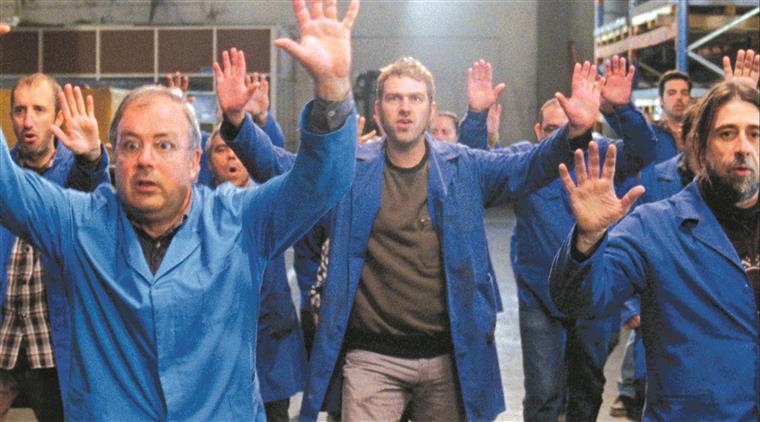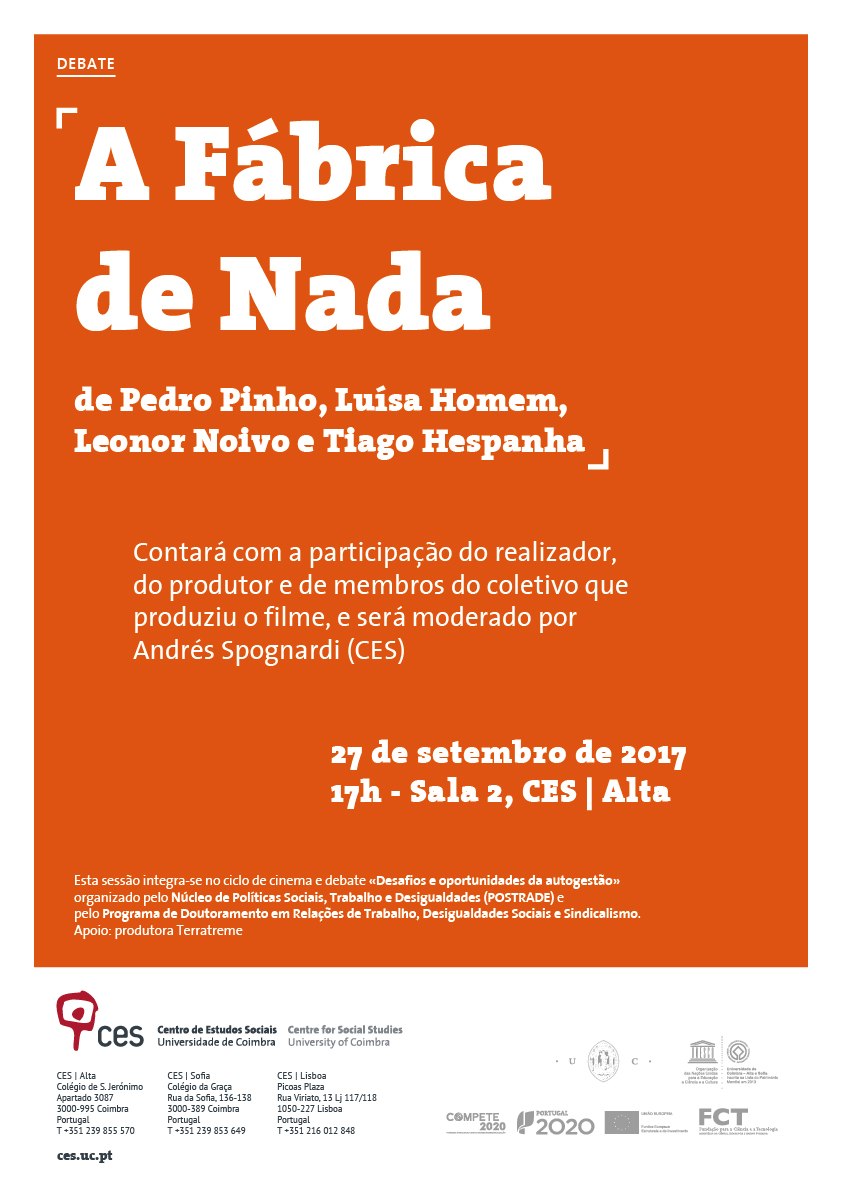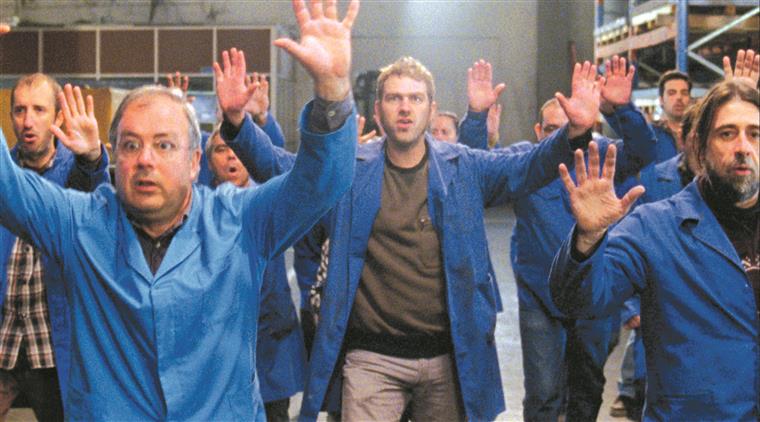Debate
«A Fábrica de Nada» by Pedro Pinho, Luísa Homem, Leonor Noivo and Tiago Hespanha
September 27, 2017, 17h00
Room 2, CES | Alta
Abstract
In recent times, several European countries have witnessed a substantial increase of factories in self-management. Where the limits of capitalism have become more evident, the collective force of workers has proved to be its best potential, allowing the recovery of hundreds of companies in crisis.
Due to its economic, social and political connotations, the phenomenon has captured the interest and imagination of many filmmakers, screenwriters and producers. Be it documentary or fiction, cinema offers living portraits of the tenacious struggle of workers that assume control of a company to preserve their source of employment.
This series of activities, organized by the Social Policies, Labour and Inequalities Research Group (POSTRADE), of the Centre for Social Studies (CES) and the Coordination of the Doctoral Programme in Labour Relations, Social Inequalities and Trade Unionism (Faculty of Economics of the University of Coimbra/CES), intends to establish a dialogue between cinema and academia. Using an artistic approach as a pretext for a scientific debate, the seminars will discuss the challenges and opportunities inherent to the recovery and management of companies by workers.

This session’s programme
The first session of the series will discuss the film "A Fábrica de Nada", recently awarded the FIPRESCI - International Federation of Film Critics prize, during the Quinzaine des Réalisateurs, in Cannes and the CineVision award – Munich’s Filmfest. The film will be in theatres in Coimbra starting September 21st - this session will screen a short version (full version is 177 min. long)
The seminar is organised in partnership with the production company Terratreme, with the presence of the film’s director and producers. Andrés Spognardi, researcher at the Centre for Social Studies, will moderate the discussion.
“One night a group of workers notices that management is steeling machines and raw materials from their own factory. As they decide to organise themselves to protect the equipment and to halt the production’s dislocation, the workers are forced - as a form of retaliation – to remain at their posts with nothing to do while they carry on negotiations to secure their jobs, through collective self-management, thus avoiding the factory shutting down and being fired. The pressure leads to the overall collapse of the workers, while the world seems to crumble around them.”
The “A Fábrica de Nada” is a fiction based on a story lived by a group of workers, some of which participated in the film, that allows us to think about the role of labour when economic crises are used to take advantage and subject workers to indecent working conditions and gross insecurity.
[About the film: «Não há redenção à vista. Vamos cantar?», by Vasco Câmara, Público, May 17, 2017]



